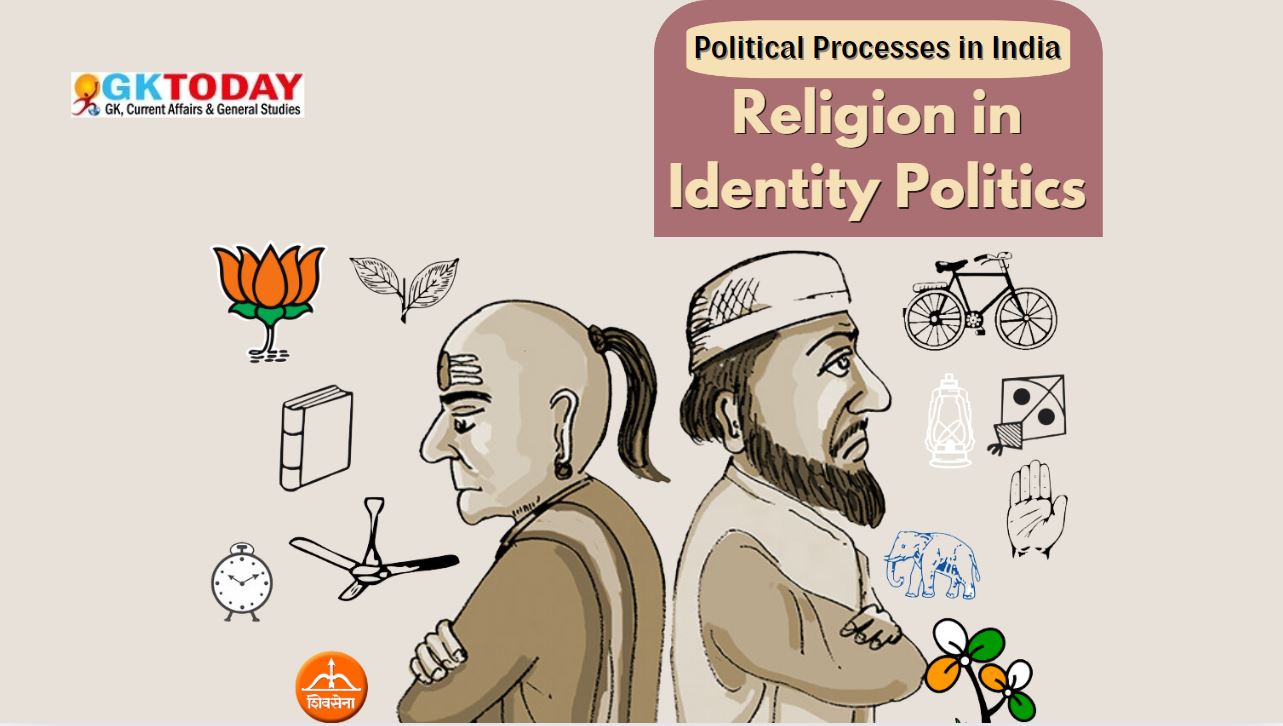Religion in Identity Politics – UGC-NTA NET Political Science
Identity politics plays important role in shaping political landscapes worldwide. In India, religion influences political affiliations, electoral behaviour, and social movements.
Definition of Identity Politics
Identity politics refers to political approaches that emphasise the interests and perspectives of specific social groups. These groups often share common characteristics, such as religion, ethnicity, or gender. Mobilisation occurs around these identities to achieve political goals.
Role of Religion in Indian Identity Politics
Religion is a prominent marker of identity in India’s diverse society. It affects political affiliations and electoral behaviour. Political parties often align themselves with specific religious communities to garner support.
Major Religious Communities in India
India is home to various religious communities, each contributing to the nation’s identity.
- Hinduism: Approximately 79.8% of the population.
- Islam: Approximately 14.2% of the population.
- Christianity: Approximately 2.3% of the population.
- Sikhism: Approximately 1.7% of the population.
- Buddhism: Approximately 0.7% of the population.
- Jainism: Approximately 0.4% of the population.
Political Parties and Religion
Political parties in India navigate the complex landscape of religion to secure votes.
- Bharatiya Janata Party (BJP): Advocates Hindutva, appealing to Hindu nationalism.
- Indian National Congress (INC): Historically secular, seeks to attract diverse religious communities.
- Regional Parties: Mobilise support based on local religious identities, such as All India Trinamool Congress and Shiv Sena.
Electoral Politics and Religion
Religion plays role in electoral politics.
- Religious symbols and rhetoric are common in political campaigns.
- Communal polarization often intensifies during elections.
- Religious leaders and organisations influence voter behaviour.
Communalism
Communalism seeks to promote the interests of specific religious communities, often at the expense of others.
- Historical Instances: The Partition of India in 1947 resulted in mass violence and displacement. Communal riots, such as the 1984 anti-Sikh riots and the 2002 Gujarat riots, exemplify the dangers of communalism.
Secularism in India
India’s Constitution guarantees freedom of religion under Articles 25-28. Secularism is a principle of governance, yet it faces challenges from identity politics.
- Secularism aims to treat all religions equally.
- Debates arise regarding its effectiveness in a diverse society.
Impact of Religion on Policy Making
Religion influences various aspects of policy-making in India.
- Reservation policies for religious minorities, such as OBC status for certain Muslim communities.
- Laws shaped by religious sentiments, including debates over Triple Talaq and the Uniform Civil Code.
Social Movements and Religion
Religious organisations play a vital role in social movements.
- The Ram Janmabhoomi movement exemplifies the intersection of religion and politics.
- Religion and caste often intertwine to mobilise political support.
Contemporary Issues
Several contemporary issues highlight the impact of religion on Indian politics.
- The rise of religious nationalism poses challenges to democracy.
- Increasing polarization threatens social cohesion.
- Social media shapes religious identities and political narratives.
Case Studies
Several case studies illustrate the relationship between religion and politics in India.
- Ayodhya Dispute: The dispute over the Ram Janmabhoomi site has political ramifications.
- 2019 Indian General Elections: Religion played a critical role in voting patterns.
- Citizenship Amendment Act (CAA) and National Register of Citizens (NRC): Protests brought into light religious identity issues.
Theoretical Perspectives
Various theoretical perspectives inform the study of religion in identity politics.
- The constructivist view examines how identities are formed and mobilised.
- Theories of communalism and secularism provide vital information about the Indian context.
Key Terms
About key terms is essential for studying this topic.
- Communalism: Promoting a particular religious community’s interests.
- Secularism: Separation of religion from political governance.
- Hindutva: An ideology advocating Hindu nationalism.
- Religious Nationalism: Nationalism based on religious identity.
- Identity Politics: Political approaches centred on specific social identities.
- Caste Politics: Political mobilization based on caste identity.
- Electoral Behaviour: How religious identity influences voting decisions.


